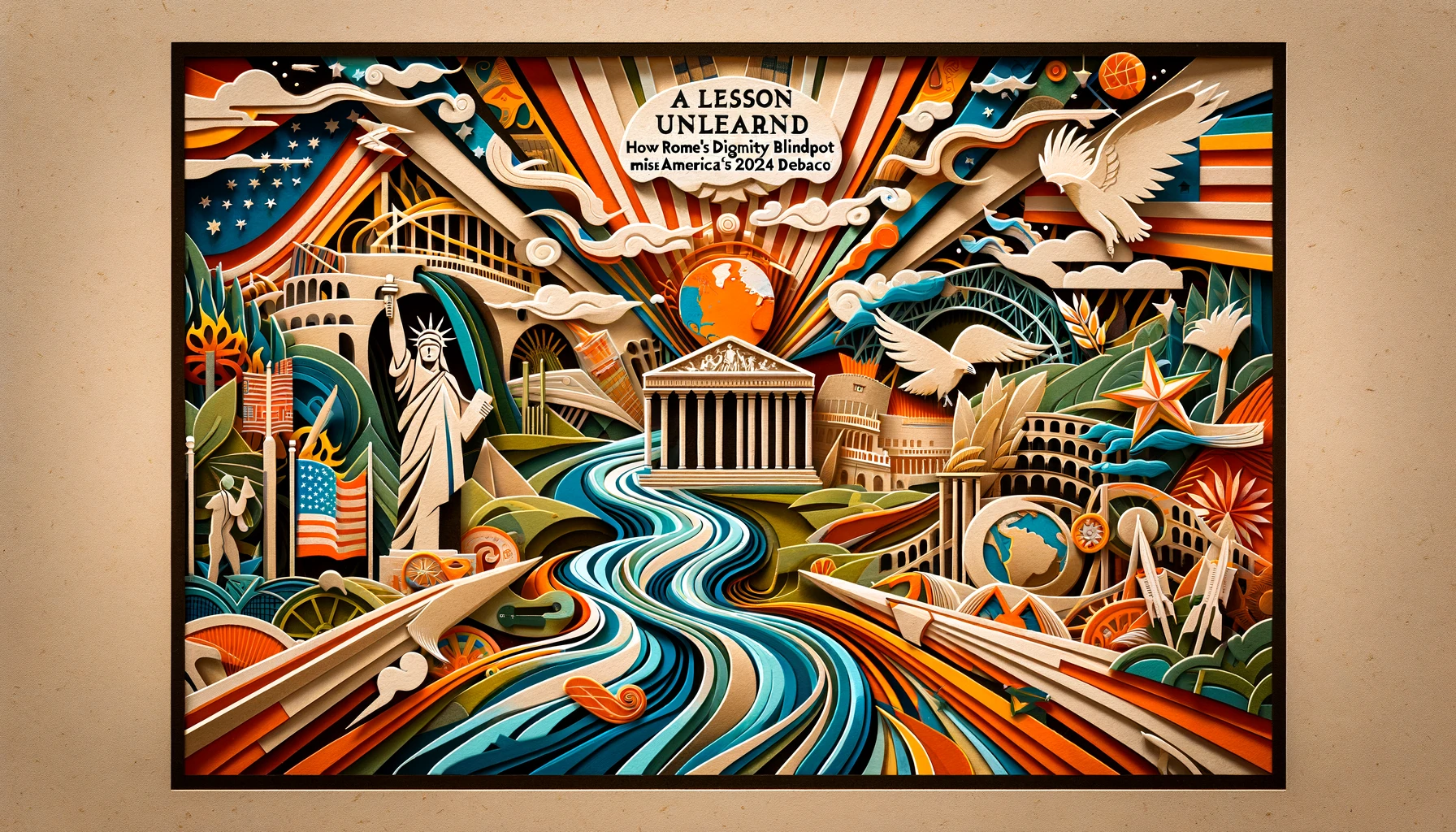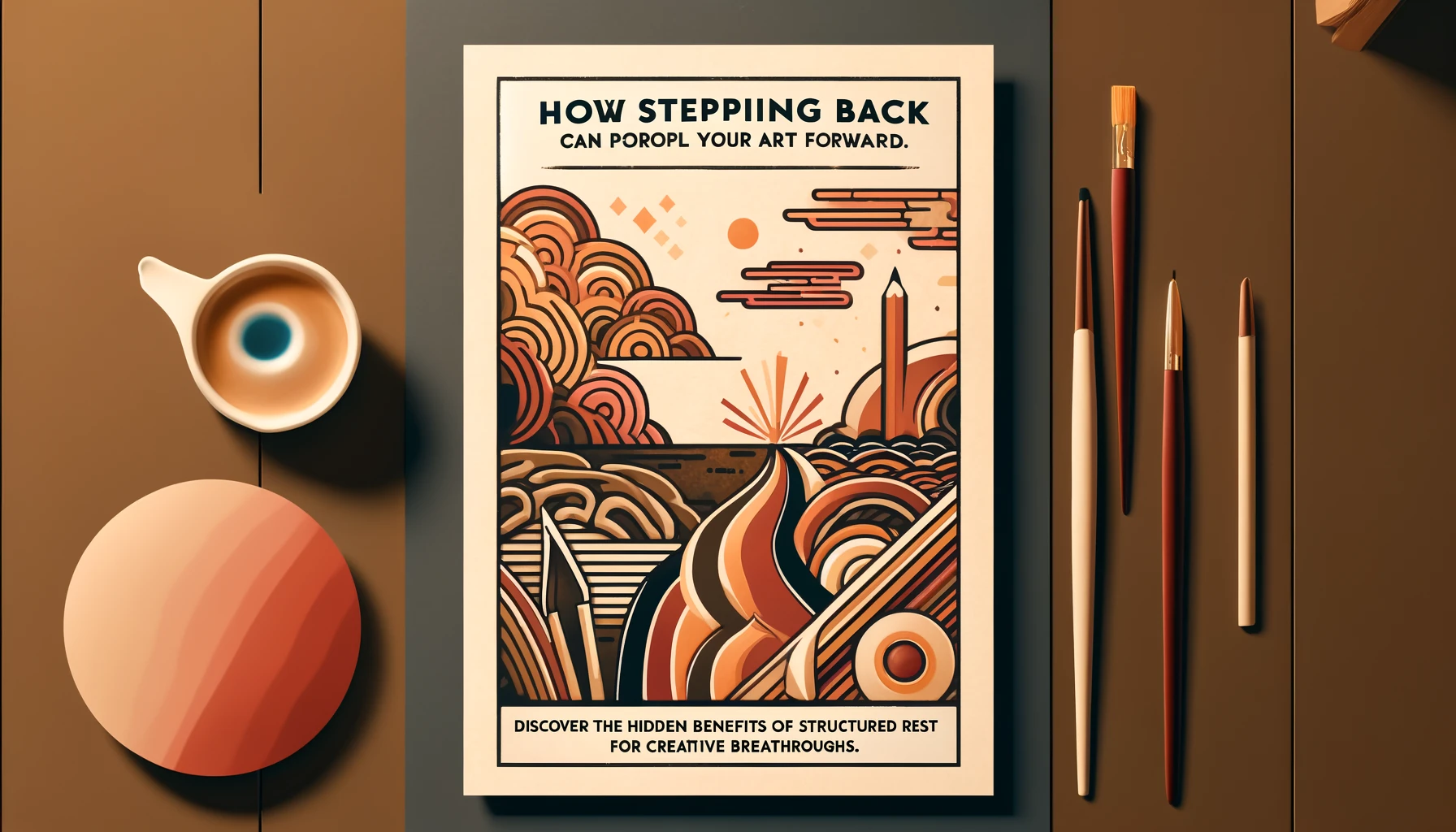A Lesson Unlearned: How Rome’s Dignity Blindspot Mirrors America’s 2024 Debacle
The Eternal City’s Oversight: Tracing the Parallels to Modern America’s Crisis
*
Yes, this has been explored a thousand times. But I want to share my take on the idea. The grandeur of Rome, with its colossal architecture and legendary legions, has long been etched into the annals of history. Yet, beneath the marble and triumphs, lay a festering core of societal neglect—a dignity blindspot—that ultimately led to its downfall. Fast forward two millennia, and the echoes of Rome’s oversight reverberate through the corridors of modern America, particularly in the tumultuous aftermath of the 2024 debacle. The United States, a nation that once prided itself on being the beacon of democracy, found itself grappling with a crisis that bore an uncanny resemblance to the ancient empire’s own struggles with inequality and civic disengagement.
In dissecting the parallels, one cannot ignore the stark similarities in the erosion of middle-class stability and the concentration of wealth in the hands of a few. Just as Rome’s plebeians faced the indignity of economic marginalization, so too did America’s working class in 2024, with real wages stagnating and the cost of living soaring. The resulting discontent was a powder keg that, once ignited, sent shockwaves through the political landscape, challenging the very foundations of the republic.
From Republic to Ruin: Rome’s Ignored Warnings and the U.S. 2024 Fiasco
*
The trajectory from republic to ruin is a well-trodden path in the annals of history, and Rome’s decline offers a cautionary tale that was all but ignored by the United States as it barreled toward the 2024 fiasco. The Roman Republic, in its zenith, was characterized by a delicate balance of power and a shared sense of civic duty. However, as wealth became concentrated and populist leaders manipulated the masses, the republic’s pillars crumbled. Similarly, America’s political landscape leading up to 2024 was marred by polarization and the rise of demagoguery, as trust in institutions waned and the social contract frayed.
There were plenty of warnings, with scholars and commentators drawing parallels between the United States’ trajectory and Rome’s descent long before the crisis reached its zenith. Yet, these admonitions went unheeded as boldly as those decrying climate change, as short-term political gains were prioritized over long-term stability (Marcus Aurelias is spinning in his grave). The result was a series of unstoppable catastrophic policy failures that left the nation reeling, its global standing diminished, and its people divided.
Civic Virtue Lost: How Rome’s Fall Foreshadowed America’s 2024 Quagmire
*
The concept of civic virtue—active participation in the common welfare of the community—was the bedrock upon which Rome was built. As this virtue waned, so did the empire. The citizenry’s engagement in public affairs was replaced by apathy and a hunger for bread and circuses. This decline in civic responsibility and the rise of personal indulgence foreshadowed the quagmire that America found itself in during 2024. The once vibrant public square, filled with debate and discourse, had given way to echo chambers and vitriolic partisanship.
In the lead-up to the 2024 debacle, voter turnout statistics painted a grim picture of a disengaged electorate, with many Americans feeling that their voices no longer mattered in the political arena. The corrosion of civic education and the proliferation of misinformation left the populace ill-equipped to navigate the complexities of governance, leading to decisions that undermined the very fabric of democracy. As Rome’s history demonstrated, when the citizenry disengages, the republic is left vulnerable to the whims of the powerful and the caprices of fate.
History Rhymes: The Dignity Blindspot that Toppled Empires and Shook America in 2024
*
The adage that history doesn’t repeat itself, but it often rhymes, rings particularly true when examining the dignity blindspot that contributed to the fall of empires and the tremors that shook America in 2024. Rome’s failure to address the needs and rights of its citizens, particularly those on the margins of society, created a chasm that ultimately swallowed the empire whole. Fast forward to the 21st century, and America’s own dignity blindspot was laid bare as systemic inequalities and a lack of social cohesion led to widespread unrest and disillusionment.
The 2024 debacle was not an event born in isolation; it was the culmination of years of neglecting the warning signs that history had laid out in plain sight. The concentration of wealth and power, the erosion of civil liberties, and the disregard for the common good were not merely contemporary issues but were threads woven throughout the tapestry of fallen civilizations. As America looked back on the tumult of 2024, it became clear that the lessons of Rome were more than historical footnotes; they were prophetic insights that had been ignored at great peril.
So what now? The parallels between Rome’s oversight and America’s 2024 debacle serve as a stark reminder that the health of a republic is contingent upon the dignity afforded to its citizens. As America grapples with the aftermath and looks to rebuild, it must heed the lessons of history and foster a society where civic virtue and the common good are not just ideals but lived realities. Only then can the nation hope to avoid the fate of the Eternal City and chart a course toward a more stable and equitable future.


